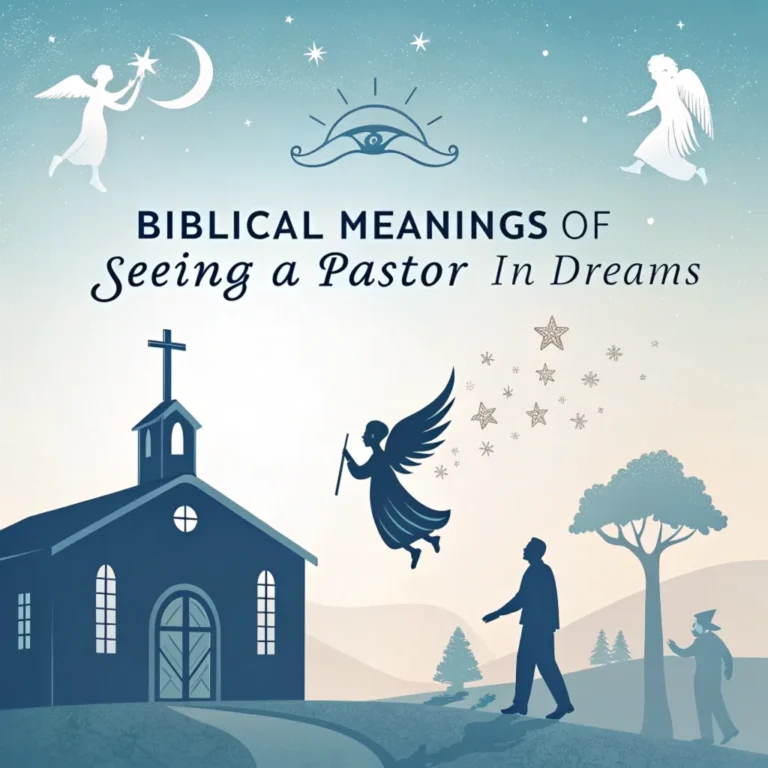17 Bible Verses on Anger and Forgiveness: A Path to Healing and Peace
Anger and forgiveness are complex emotions that often intertwine in our lives.
The Bible offers profound wisdom on managing anger and embracing forgiveness.
This post explores 17 essential Bible verses that shed light on these crucial aspects of human relationships and spiritual growth.

Key Takeaways: Anger and Forgiveness in the Bible
- Anger management: The Bible advises against letting anger control us
- Quick forgiveness: Scripture encourages forgiving others promptly
- God’s example: We are called to forgive as God forgives us
- Consequences: Holding onto anger can lead to sin and bitterness
- Healing power: Forgiveness brings emotional and spiritual healing
- Righteous anger: There is a place for righteous anger against injustice
- Self-control: The Bible emphasizes the importance of controlling our emotions
- Mercy: Showing mercy to others is a key aspect of forgiveness
- Reconciliation: Forgiveness can lead to restored relationships
- Spiritual growth: Learning to forgive helps us grow closer to God
- Peace: Forgiveness brings inner peace and harmony with others
Navigating the complexities of anger and forgiveness can be challenging, but the Bible provides invaluable guidance.
By understanding and applying these principles, we can cultivate healthier relationships and experience personal growth.
The journey towards forgiveness may not always be easy, but it is a path that leads to healing and freedom.
Understanding Anger Through Biblical Wisdom
Anger is a natural human emotion, but the Bible warns us about its potential dangers. Scripture provides guidance on managing anger effectively.
Ephesians 4:26-27 states, “Be angry and do not sin. Don’t let the sun go down on your anger, and don’t give the devil an opportunity.” This verse acknowledges that anger can occur but emphasizes the importance of addressing it quickly to prevent sin.
James 1:19-20 advises, “Everyone should be quick to listen, slow to speak and slow to become angry, because human anger does not produce the righteousness that God desires.” This passage highlights the value of self-control and patience in managing anger.
The Bible’s approach to anger management emphasizes the importance of self-awareness and quick resolution.
By addressing our anger promptly and constructively, we can prevent it from festering into resentment or leading to harmful actions. This wisdom helps us maintain healthy relationships and inner peace.
Practicing biblical principles for managing anger can lead to improved emotional well-being and stronger interpersonal connections.
The Power of Forgiveness in Scripture

Forgiveness is a central theme in the Bible, reflecting God’s mercy and grace towards humanity.
Colossians 3:13 instructs, “Bearing with one another and, if one has a complaint against another, forgiving each other; as the Lord has forgiven you, so you also must forgive.”
This verse underscores the importance of forgiving others as we have been forgiven by God.
Matthew 6:14-15 states, “For if you forgive others their trespasses, your heavenly Father will also forgive you, but if you do not forgive others their trespasses, neither will your Father forgive your trespasses.”
This passage emphasizes the reciprocal nature of forgiveness in our relationship with God.
Forgiveness is a powerful tool for healing and restoration in our lives. By embracing forgiveness, we free ourselves from the burden of resentment and open the door to reconciliation and peace.
The biblical perspective on forgiveness challenges us to extend grace even in difficult situations.
As we practice forgiveness, we align ourselves with God’s character and experience the transformative power of His love in our relationships.
Overcoming Anger Through Forgiveness
The Bible teaches that forgiveness is a powerful tool for overcoming anger and resentment.
Ephesians 4:31-32 advises, “Let all bitterness and wrath and anger and clamor and slander be put away from you, along with all malice. And be kind and compassionate to one another, forgiving one another, just as God also forgave you in Christ.”
This verse encourages us to replace negative emotions with kindness and forgiveness.
Proverbs 15:1 states, “A soft answer turns away wrath, but a harsh word stirs up anger.” This proverb highlights the power of gentle responses in diffusing anger.
The connection between anger and forgiveness is profound. By choosing to forgive, we can break the cycle of anger and resentment that often traps us.
This biblical wisdom encourages us to respond to offenses with grace, fostering an environment of understanding and reconciliation.
Embracing forgiveness as a response to anger can lead to emotional healing and stronger relationships.
God’s Forgiveness as a Model

The Bible presents God’s forgiveness as the ultimate example for believers to follow.
Psalm 103:10-12 declares, “He has not dealt with us according to our sins, nor punished us according to our iniquities. For as the heavens are high above the earth, so great is His mercy toward those who fear Him; as far as the east is from the west, so far has He removed our transgressions from us.”
This passage illustrates the extent of God’s forgiveness.
Micah 7:18-19 states, “Who is a God like You, pardoning iniquity and passing over the transgression of the remnant of His heritage? He does not retain His anger forever, because He delights in mercy. He will again have compassion on us, and will subdue our iniquities. You will cast all our sins into the depths of the sea.”
This verse portrays God’s delight in showing mercy and forgiveness.
God’s forgiveness serves as a powerful model for our own practices of forgiveness. His willingness to forgive completely and without reservation challenges us to extend the same grace to others.
By emulating God’s forgiveness, we can experience deeper relationships and personal growth.
Understanding the depth of God’s forgiveness can inspire us to be more forgiving in our own lives, leading to greater peace and harmony in our relationships.
The Consequences of Unresolved Anger
Scripture warns about the dangers of harboring anger and refusing to forgive.
Hebrews 12:15 cautions, “See to it that no one falls short of the grace of God and that no bitter root grows up to cause trouble and defile many.” This verse warns against allowing bitterness to take root in our hearts.
Matthew 5:22 states, “But I say to you that everyone who is angry with his brother will be liable to judgment; whoever insults his brother will be liable to the council; and whoever says, ‘You fool!’ will be liable to the hell of fire.”
This passage emphasizes the serious consequences of uncontrolled anger.
Unresolved anger can have far-reaching consequences in our lives. It can damage relationships, hinder spiritual growth, and even affect our physical health.
The Bible’s warnings about the dangers of harboring anger encourage us to address conflicts promptly and seek reconciliation.
By recognizing the potential harm of unresolved anger, we can be motivated to practice forgiveness and maintain healthy emotional and spiritual lives.
Practicing Forgiveness in Daily Life
The Bible provides practical advice for implementing forgiveness in our relationships.
Luke 17:3-4 instructs, “If your brother sins, rebuke him, and if he repents, forgive him. And if he sins against you seven times in the day, and turns to you seven times, saying, ‘I repent,’ you must forgive him.” This verse encourages us to forgive repeatedly and without limit.
Romans 12:17-18 advises, “Repay no one evil for evil, but give thought to do what is honorable in the sight of all. If possible, so far as it depends on you, live peaceably with all.” This passage promotes a peaceful approach to relationships, even in the face of wrongdoing.
Implementing forgiveness in our daily lives requires intentionality and practice. It involves choosing to let go of resentment and extending grace, even when it’s difficult.
By following biblical principles of forgiveness, we can create a culture of reconciliation in our relationships and communities.
Regular practice of forgiveness can lead to personal growth and more fulfilling relationships, as we learn to navigate conflicts with grace and understanding.
The Healing Power of Forgiveness
Scripture reveals the transformative effect of forgiveness on our emotional and spiritual well-being.
Isaiah 43:25 declares, “I, even I, am He who blots out your transgressions for My own sake; and I will not remember your sins.” This verse illustrates God’s complete forgiveness and encourages us to forgive fully.
Mark 11:25 states, “And whenever you stand praying, forgive, if you have anything against anyone, so that your Father also who is in heaven may forgive you your trespasses.”
This passage links our forgiveness of others to our own spiritual growth and relationship with God.
The act of forgiving has profound healing effects on both the forgiver and the forgiven. It releases us from the burden of resentment and opens the door to emotional and spiritual renewal.
By embracing forgiveness, we align ourselves with God’s will and experience His peace in our lives.
Practicing forgiveness can lead to improved mental health, stronger relationships, and a deeper sense of spiritual well-being.
Frequently Asked Questions About Anger and Forgiveness in the Bible
How can I control my anger according to the Bible?
The Bible advises practicing self-control, responding gently, and addressing anger quickly. Proverbs 16:32 states, “Whoever is slow to anger is better than the mighty, and he who rules his spirit than he who takes a city.”
Is it a sin to be angry?
Anger itself is not necessarily a sin, but how we handle it can lead to sin. Ephesians 4:26 says, “Be angry and do not sin.” The key is to manage anger appropriately and not let it control our actions.
How many times should I forgive someone according to the Bible?
Jesus taught unlimited forgiveness. In Matthew 18:21-22, when Peter asked if forgiving seven times was enough, Jesus replied, “I do not say to you seven times, but seventy-seven times,” indicating we should always be ready to forgive.
What does the Bible say about forgiving yourself?
While the Bible doesn’t explicitly mention self-forgiveness, it emphasizes God’s complete forgiveness of our sins. 1 John 1:9 states, “If we confess our sins, he is faithful and just to forgive us our sins and to cleanse us from all unrighteousness.
Can I be angry at God?
The Bible shows examples of people expressing frustration or anger towards God, such as Job or some Psalms. However, it’s important to approach God with reverence and trust in His goodness, even when we don’t understand His ways.
How does forgiveness benefit the forgiver?
Forgiveness frees us from bitterness and resentment. Hebrews 12:15 warns against allowing a “root of bitterness” to grow, suggesting that forgiveness protects our own spiritual and emotional health.
Is forgiveness the same as reconciliation?
Forgiveness and reconciliation are related but distinct. Forgiveness is a decision to release resentment, while reconciliation involves restoring a relationship. Forgiveness can occur without reconciliation, especially in cases of ongoing harm or unrepentance.

Samantha is the author of Inner Light Spirituality, where she shares insights and guidance to inspire others on their spiritual journeys. With a passion for exploring various spiritual traditions, Samantha aims to make spirituality accessible and relatable. Through her writing, she encourages readers to embrace their unique paths and find meaning in their experiences. When not writing, she enjoys meditating and connecting with nature.







